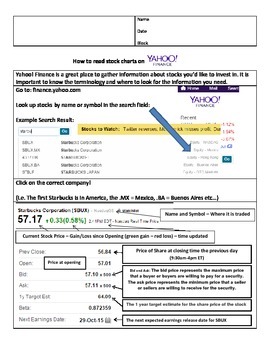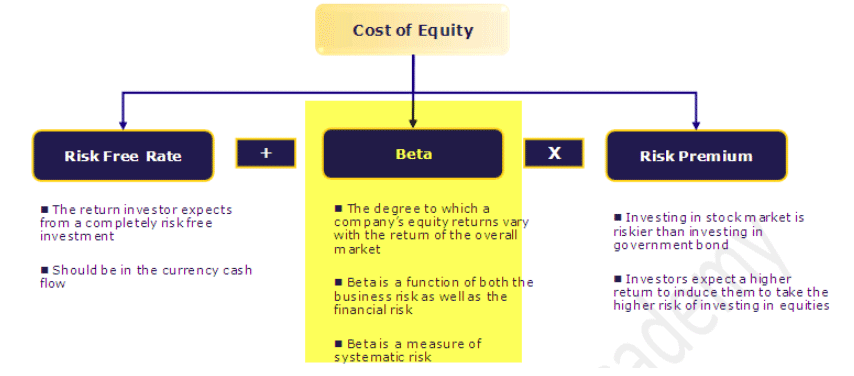" I would suggest that, if possible, don't position pressure on yourself to be profitable right away given that some kinds of business, such as blogging, are a long video game. In general, my guidance is to do your best, react to feedback from your audience, and pivot your material or product accordingly." This article was originally released on.
Although we all use our checking account daily, many of us might not know how banks really work. With inspecting accounts that pay you interest and free ATM services, how do banks generate income? Well, you better believe banks are a service and earnings is their leading priority. Let's enter into it! Basically, banks do not make a profit until they have your money, so drawing in and keeping customers is key for banking institutions.
Like any organization, banks have expenditures and earnings streams that they tactically take advantage of in order to grow. Banks are understood for charging charges or recurring costs to account holders, but the primary way they earn money is through loans. Below are the main methods which banks make cash. When you transfer your cash in a savings account, the bank utilizes that money to make loans to other individuals and organizations to whom they charge interest - how much money does a finance guy at car delearship make.
However, they gather more interest on the loans they provide to besides the amount of interest they pay to account holders like you. This, in turn, makes them a profit. For example, your standard bank account may earn you 1% monthly, but the bank is utilizing those funds (pooled together with many other accounts') to issue home mortgages at 4%, student loans at 12%, and charge card at 20%.
Huge banks can make more than $50 billion each year on interest alone and comparable amounts on other product and services. By offering you pennies monthly, the banking institution is making millions. Another way banks earn money is through regular or case-by-case charges. These might include: which are usually charged to your account monthly just for being open.

The Best Strategy To Use For How Much Money Can Youa Ctually Make In Finance
for not utilizing your account often enough. Be sure to look into this before opening an account you prepare to seldom utilize. when you spend more than you have in your account. You can avoid these by remaining on top of your spending plan. from savings accounts, which have monthly caps mandated by the federal government.

if you opt not to receive online statements. Going paperless is more eco-friendly, simpler to track, and efficient anyhow, so definitely consider this choice. for lost or taken debit cards. if you utilize specific ATMs outside of your bank's network. if you transfer somebody else's bad check, even if you do so unconsciously.
While swiping your debit or charge card is usually complimentary to you, a deal or processing charge called interchange is normally generated. This cost is charged by your bank to the merchant's bank (merchant being the store where you made the purchase) as a percentage of your transaction. The merchant's bank then subtracts this cost and their own processing cost, from the cost of your purchase.
In the procedure, the banking parties involved generate income from costs that the coffee bar needs to pay. This is why in some cases you'll see minimum purchase requirements in certain shops, as these charges can accumulate rapidly. As with any other company, banks also have their share of expenses they require to pay to keep things running.
These expenses include standard operational spending like employee salaries and advantages, devices and IT, lease, taxes, and expert services like marketing. On the other hand, banks likewise have "interest expenses," which are the expense of interest on loans they get, much like you pay when you secure a loan.
The Ultimate Guide To How Much Money Do You Actually Make In A Finance Internship
When you transfer money in your checking account, you're paying an "chance expense". This means, instead of investing that money yourself, you're permitting the https://diigo.com/0imfw1 bank to earn a revenue using your cash. In exchange, you'll get a safe and secure location to save your money and you'll earn a very small interest percentage.
As soon as you do this, you can identify just how much to put in the bank and just how much to invest somewhere else. Here are some essential things to search for in a bank. The very first thing you ought to search for in a bank is that it's guaranteed by the FDIC. If it is, that suggests you're covered for losses of a minimum of $250,000 if the bank goes out of company.
Evaluate whether the fees use to you, if the charges are worth it in exchange for any benefits, and if there's a method to waive or prevent the fees. Consider this: An $8 monthly maintenance fee over the course of 5 years is nearly $500. If you believe that $500 could be much better invested or invested, make your choices accordingly (how to make a lot of money in finance).
You're not restricted to the closest or best-known bank. While it might be helpful to ask around, do your own research since lots of people pick a bank out of benefit, instead of digging into all the elements at play. There are many alternatives that each have their own advantages and disadvantages.
While their client service may have extended hours, it may likewise be less individual since of the volume of clients they deal with everyday. You are a lot more most likely to have account charges with these larger banks. These community-focused banks may do more to return and stimulate the regional economy - how to make big money in finance.
What Does Banzai Education For Personal Finance How Do They Make Money Do?
Their services may be restricted compared to their bigger rivals, and if you travel frequently, you might miss out on the benefit of far-reaching areas. Very comparable to local banks in service, cooperative credit union have a not-for-profit structure and are owned by the clients. (Standard banks are investor-owned.) This means you become a partial owner when you open a cooperative credit union account and deposit money.
However, these smaller sized institutions have less reach than the huge names in banking. Having ditched the brick-and-mortar, online banks operate entirely on the webthis is both an advantages and disadvantage depending on your relationship with technology. Electronic banking is frequently totally free and may even pay higher rate of interest on accounts than traditional banks.
Some huge banks do use online banking, so this might be a hybrid alternative for you. The great news is, there are plenty of options out there to assist you manage your cash. The challenging part is determining which is the very best fit. Don't be scared to search before devoting.
" Make your cash work for you" is such common personal financing recommendations that it surrounds on being clich. However what does it really imply? And more importantly, how can you do it?There's no easy response or a single way to do it. In fact, practically everyone can find a minimum of one way to put their money to work.